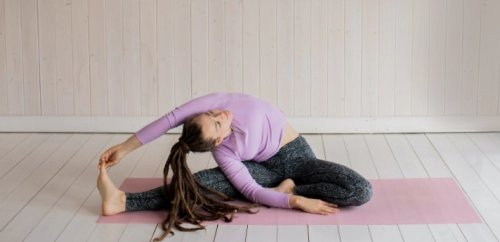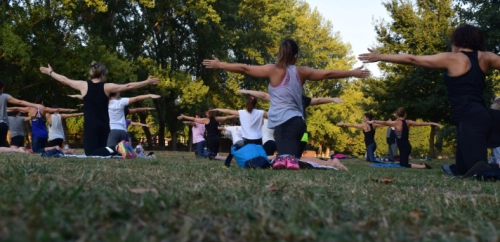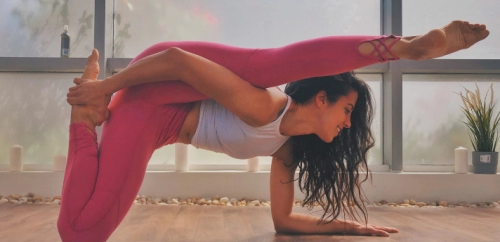Types Of Meditation: Which Meditation Is Best For You?

Nowadays, almost everyone understands and knows what meditation is. It has become a tool not only in medical treatments but also in spiritual and mindfulness practices. But though we all know what meditation is and that it has been used for centuries, we may not understand the different types of meditation practices that are out there for us to utilize.
Much like anything, meditation is not a one size fits all practice, and that's why when choosing the type of meditation to include in your daily routine, you have to pay attention to what each of the different practices brings to the table and entails. In other words, you have to figure out which meditation practice is the right one for you.
Figuring this out can be challenging, so we thought we'd take a look at the types of meditation practices are available for you and give you a little insight into who each type would benefit more.
Meditation Practices – Types To Consider
The first key thing to remember is that there is no right or wrong meditation practice. The core of the practice itself is to be able to calm and center yourself, and that can actually be done in multiple different ways.
So though we're going to talk about which types of meditation practices work the best for who, if you feel comfortable with multiple forms of these it is perfectly acceptable to combine or utilize multiple of these meditation practices to ensure that you are centered and present in your life.
Mindfulness
This form of meditation practice finds its roots and boots in Buddhist teachings and may be one of the most popular in the western world. The process of this meditation starts with you paying attention to your thoughts and simply observing them without any judgment of them.
Mindfulness meditation takes awareness and concentration and combines them together to help you become more focused through breathwork or concentration on a specific object. For individuals that are a little more introverted and prefer to do their meditation practices alone without a teacher, this could be the best option to begin your meditation practices.
Spiritual
No matter the religion, spiritual meditation is present in all of them. Though it may take different forms depending on the religion itself, it is still a vital practice that is used to develop a deeper understanding of the spiritual meanings of the religious practice. This is intended to help build a deeper connection with whatever higher power the person believes in.
Spiritual meditation practices can be done anywhere. Oftentimes, you'll find them done in the home as well as in some places of worship, and this is really a meditation practice that is perfect if you are already spiritual and seeking that deeper connection with whatever spiritual force guides you.
Focused
This type of meditation practice involves intense concentration through the use of your five senses. What that means is that during this meditation session, you will focus on something inside of you, whether that's your breath or the feeling of the wind on your skin. For those that choose to focus on an external influence, this can be something like moon gazing or even staring at a candle flame.
If you're looking to improve your focus and attention, then this is a great meditation practice to work into your daily routine. It is also a very simple process, but not one that is as simple as it looks. For this reason, beginners probably should not start with this option; it should be for someone who is working their way into intermediate meditational practices.
Movement
Many people imagine someone sitting cross-legged and chanting when they think of meditation. However, there are meditation methods that include movement. Maybe the most common and familiar of these practices is yoga. But there are so many other types of movement meditation practices. Some of these include walking, gardening, and even Tai chi.
This type of meditation is a very active form of practice that allows your body to create a deeper understanding and connection with the present moment. This is great for physically active individuals, as well as those that are looking to develop deeper body awareness.
Mantra
When looking at meditation practices, one can't overlook mantra meditation. This form of meditation shows up in a lot of different spiritual practices, especially in the Hindu and Buddhist traditions. With repetitive use of sound, your mind focuses on the present period. The sound can be a word or phrase or even music, but it needs to be spoken repetitively over some time.
This is actually a great option for beginners because many people find it easier to focus on a sound or word rather than their breath. Also, if you're someone who's not good with quiet silence, the fact that this utilizes noise could make your meditation practice easier to keep up with.
Visualization
Visualization meditation practices use vivid scenes and the focusing of all your five senses to put you into a more relaxed and peaceful place. This type of meditation practice can be guided or done alone, and it is intended to help embody the qualities of the surroundings you are visualizing. It can increase motivation as well as focus and is perfect for those that are looking to reduce stress and trying to find inner peace.
So How Do You Choose the Right Meditation Practice For You?
Every form of meditation has some form of breathwork and intention setting within it. Many of them are done typically sitting down, but that doesn't mean that they aren't available for you to do as you go from place to place in your busy day.
Because of this, there is no best or ideal way to meditate for any one person. When choosing the meditation practice that you want to include in your daily life, you need to look at what your goals and intentions are and how much time you have in a day to spare.
This may mean that you need to try multiple different types of the above meditation practices until you find the one that feels the best for you and fits your lifestyle. We have given you a couple of ideas of who would benefit the most from these meditations, but they by no means are the only people that should attempt those meditational practices.
So the way you choose the right meditation is simply by trial and error or going with your gut and choosing the one that sounds like it will fit your personality. Once you've done that, you can then begin to create a consistent routine that fits your lifestyle so that you can benefit from your meditational practices.
Final Thoughts
There is a wide range of meditational practices to choose from. The above ones we looked at are just a handful of the most commonly used ones. So it might be worth it to do a little more research and look at some of the other options such as progressive relaxation and love and kindness meditation practices.
The main thing to remember is that when adding a meditation practice into your daily routine, you are looking to find balance and a way to be present in your life that will help you live a happier and healthier life. Whatever type of meditation practice does that for you, that is the one that is right for you.















